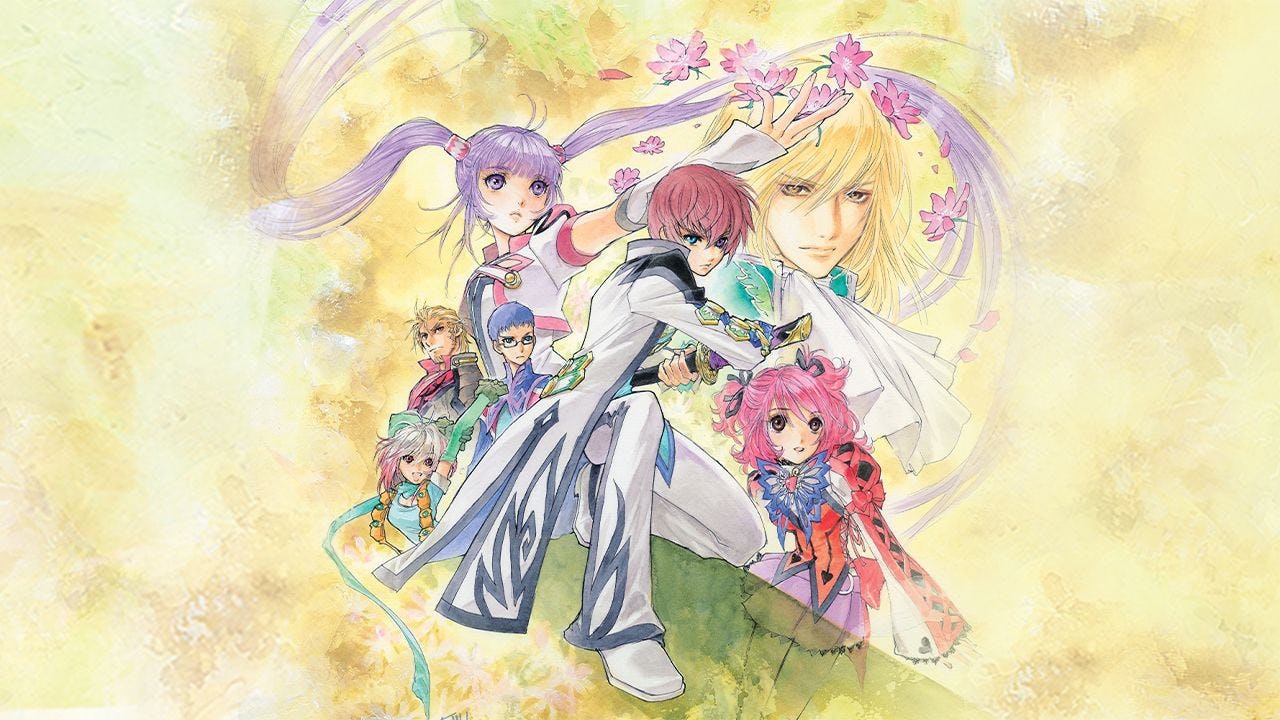
The Tales games have spent three decades proving to be one of the most enduring RPG franchises around. The likes of Tales of Destiny and Tales of Symphonia feel like timeless stories, but there’s no denying the series’ output has slowed in recent years.
We haven’t seen a new game since 2021’s Tales of Arise, which broke nearly every sales record the franchise had. But for its 30th anniversary, Tales is amid a comeback. Bandai Namco is working on a huge “remastered project” to routinely re-release games that are difficult to find and play these days. Tales of Graces f Remastered is the first step in that.
The Tales franchise also has a few notorious games that never made their way West. One is Tales of Rebirth, which just had a massive fan translation release last month. However, there’s a chance we could finally see those long-lost games fan interest proves sufficient.
“If we can release games that have not been available in the West through future remastered projects, we would be very happy,” says Tales IP director Yusuke Tomizawa, “We would also love to hear requests from fans in the West to help bring these remastered versions to their regions.”
Inverse had the chance to talk to Tomizawa and Tales of Graces f producer Yuki Ishikawa about the franchise’s ambitious comeback plans, including why Graces was picked first, how the remastered project is standardizing elements across the whole series, and why we’re mostly seeing remasters instead of remakes.
This interview has been edited for clarity and brevity.
Why was Tales of Graces f the title you chose to kick off the 30th anniversary? Is Graces a good introduction for players who have never tried the Tales series?
Tomizawa: There have been individual remastering projects in the past, but because the titles were developed under different circumstances and in different environments, the production difficulty levels varied, and it was not possible to provide them in an easy-to-understand format.
We have finally made progress in our preparations, allowing us to deliver remastered titles to players in a more continuous and unified format. As a result, we decided to release the remastered games under the title “Remastered Project,” starting with the 30th anniversary.
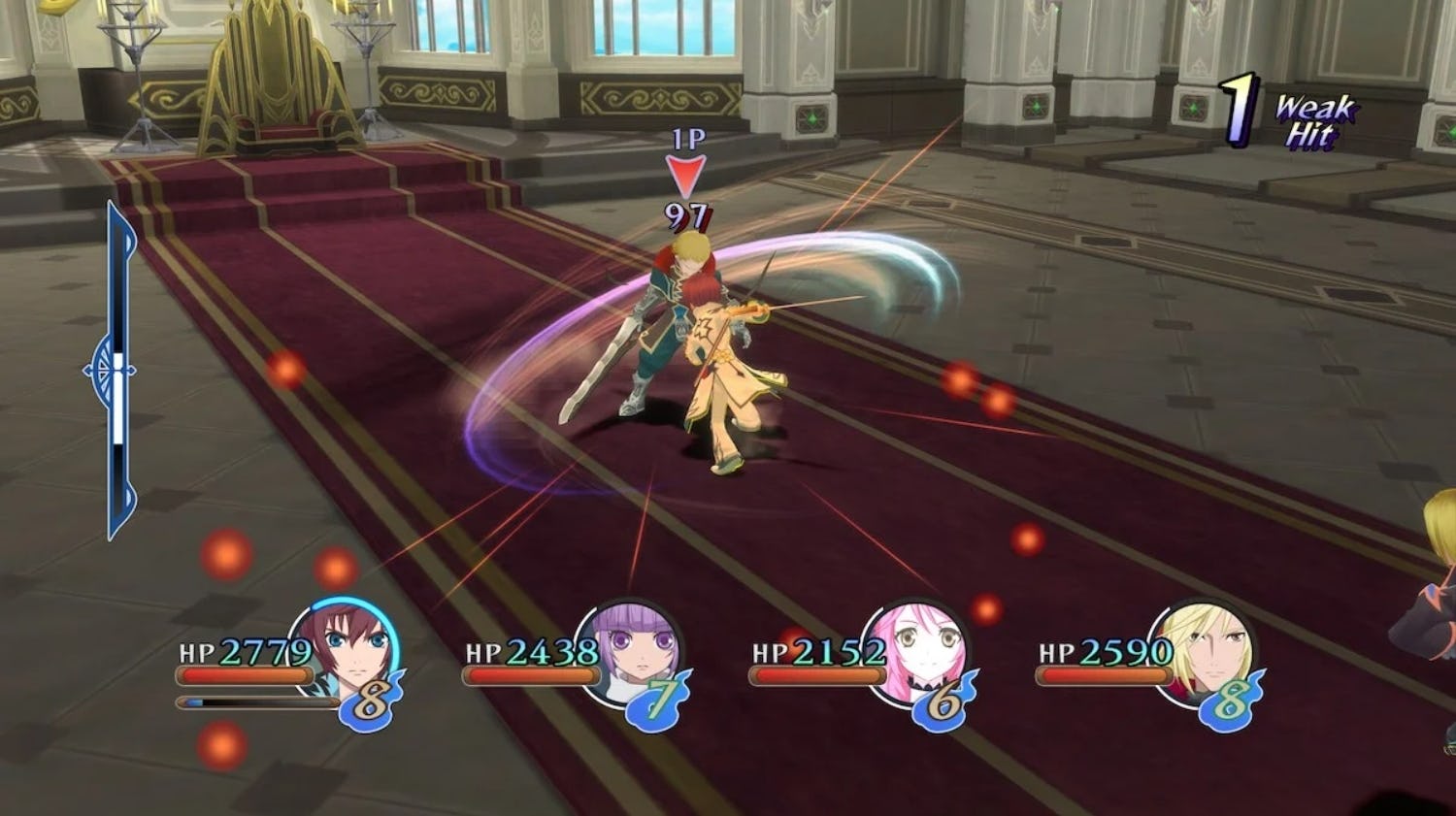
At such a fitting time, I believe that Tales of Graces f Remastered is one of the best games for new fans to enter the series. There are elements that remain unchanged throughout the series, such as the deep, rich story depicting the bonds and growth of the main party members. The battle system, which is one of the most highly rated in the series, is exhilarating and rewarding.
Although the game is 15 years old, the remastering has preserved its beauty, and the art remains timeless. I believe this game is strong enough to help newcomers who have not played the series appreciate the core value of the Tales of series.
Graces has a very distinct art style. How did you improve the game visually while ensuring its art style still felt distinct and unique?
Ishikawa: The key was to maintain and preserve the lines and coloring of the characters designed by Mutsumi Inomata-sensei. Increasing the color saturation or thickening the lines too much during the remastering process would have diminished the original’s sense of lightness and fragility. It was a challenge for the development team to maintain the delicate qualities of the original while enhancing the overall visual quality.
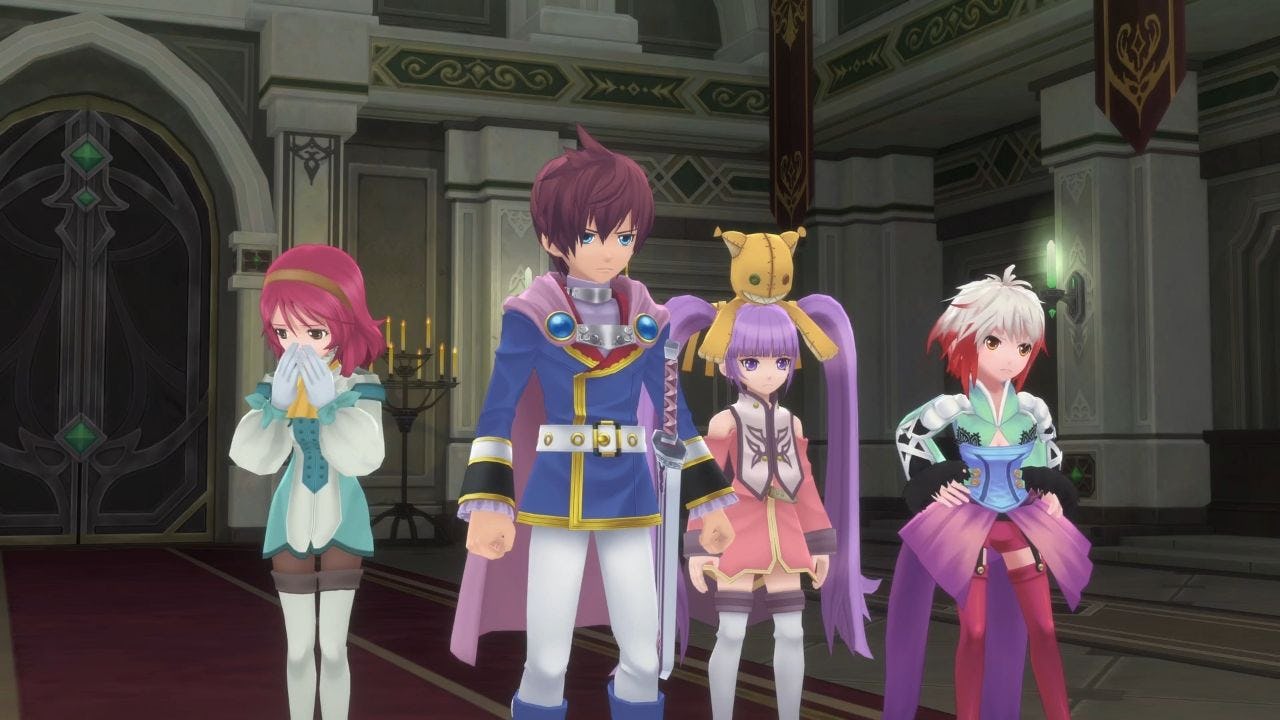
How did you decide what quality of life improvements to add to such a huge RPG?
Ishikawa: We began by porting the game to current-generation consoles, focusing on preserving the original gameplay experience. As many developers have noted, there is a lot of work involved in getting an old game to run smoothly.
After that, we made graphical improvements and added new features. The quality-of-life features were decided by me and the development team after playing various games and discussing what enhancements would make Graces f more enjoyable.
As part of the broader Tales of remastering project, we’re working to standardize quality features across titles, including consistent quality-of-life options. We also wanted to give players the flexibility to toggle certain features on or off, even after starting the game.
On a personal note, as a fan of the series, I’d love to face off against even more characters from across the franchise in areas like the arena. While this presents challenges with models and motion data, I am looking forward to seeing more characters in future remastered projects and in the development of the Tales of series.
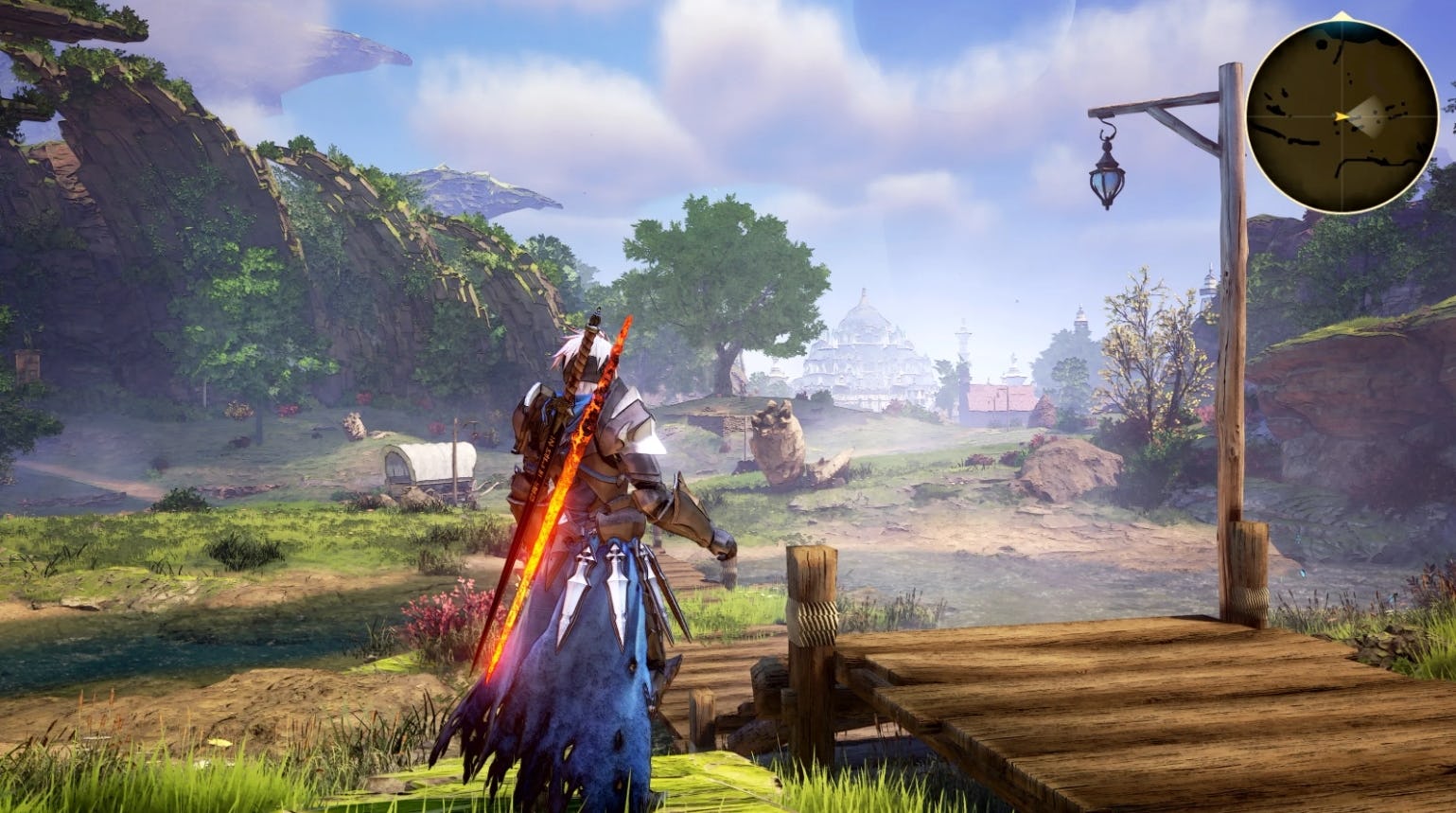
Did the success of Tales of Arise change how you approached the series? What did you learn from Arise being so popular and well-received?
Tomizawa: Tales of Arise is a game that embraced numerous challenges under the theme of “evolution and inheritance,” aiming to redefine the future of the series on a global scale. Its record-breaking success worldwide serves as a guide for the direction and quality of future titles. However, simply replicating Arise’s success each time is not the right approach, as the future is always evolving and unpredictable. As we continue developing RPGs, our goal is to navigate these changes, staying ahead of the curve while releasing games that resonate with each era.
On the other hand, I believe that this Remastered Project was made possible because Arise has expanded the series' horizons. While respecting the expressions of each era, I feel that it is important to rediscover these stories and characters, whose timeless appeal remains intact, in updated and accessible environments that offer fans a way to enjoy this series.
A handful of Tales games were never released in the West, like Tales of Rebirth. Have you thought of releasing those games in any way?
Tomizawa: Including the games released before this title, we’ve already published remastered versions in regions where the original games were never available, adding languages that were not included in the original versions. Tales of Vesperia Definitive Edition is one example of this.

From this perspective, if we can release games that have not been available in the West through future remastered projects, we would be very happy. We would also love to hear requests from fans in the West to help bring these remastered versions to their regions.
We’ve seen a few remasters of the Tales series at this point – Vesperia, Symphonia, and now Graces. Have you considered remakes at any point? Do you think remakes would fit the Tales series?
Tomizawa: Unlike remasters, remakes are developed with entirely different ideas and methods. This isn’t just true for the Tales of series—when reimagining environments and experiences from older titles using modern RPG standards, challenges naturally arise. For instance, the extensive scope of an RPG might require the content to be divided into several parts in order to fully capture its depth, making the process more complex.
The challenge of confronting one’s own cherished memories, combined with the fact that remakes are often more difficult to develop than new titles, adds to the complexity. Additionally, since the Tales of series has continually evolved, especially in terms of its action-oriented battle systems that reflect both the series’ identity and current trends, finding the right timing for a remake is also crucial.
In that sense, it may be difficult to say that the Tales of series is easy to remake in the modern era. That said, I would like to continue exploring whether it would be possible to achieve a remake by finding the right balance in our approach.
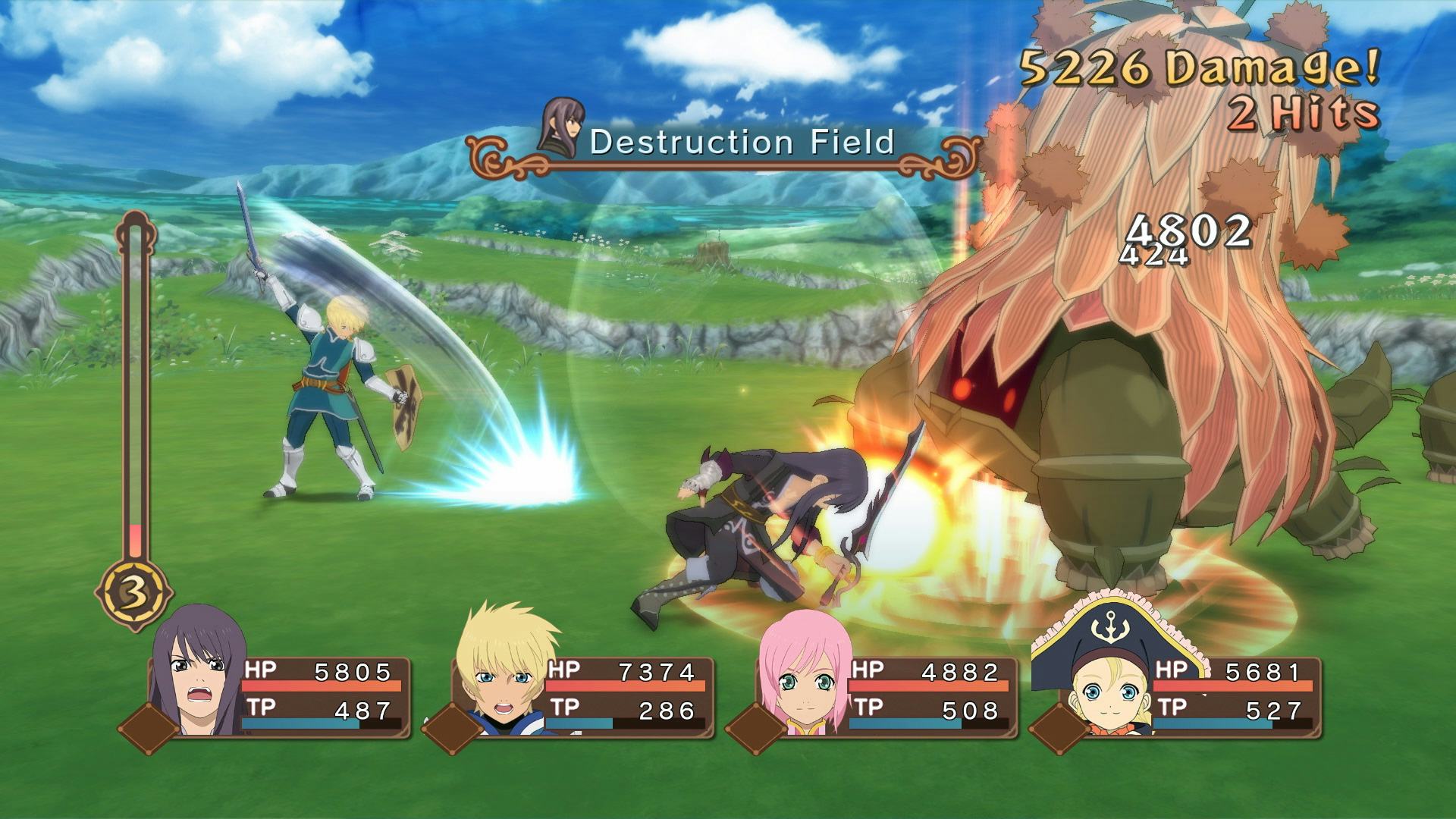
RPGs have enjoyed a resurgence in recent years, from the success of Persona to plentiful remakes of old games. What do you think the future of the Tales franchise looks like? How do you build on its 30-year legacy?
Tomizawa: First of all, I am very happy to see that JRPG-like games are gaining popularity again in the global market, including those from other companies. Through the challenges we faced with Tales of Arise, I believe we have learned that there is still room for the Tales of series to evolve, as well as a deeper understanding of the unique value and style we need to preserve and how well it resonates with players.
By adding this remastered project to our portfolio, we are committed to continuing the pursuit of evolution while preserving the fundamental core appeal of character-driven RPGs.
Additionally, as a long-standing and cherished character-driven brand that has spanned 30 years, growing richer with time without losing its essence, I believe it is important to keep attracting new fans to the series and to continue honoring its enduring value.
Tales of Graces f Remastered is available now on PS4, PS5, Xbox One, Xbox Series X|S, Nintendo Switch, and PC.







